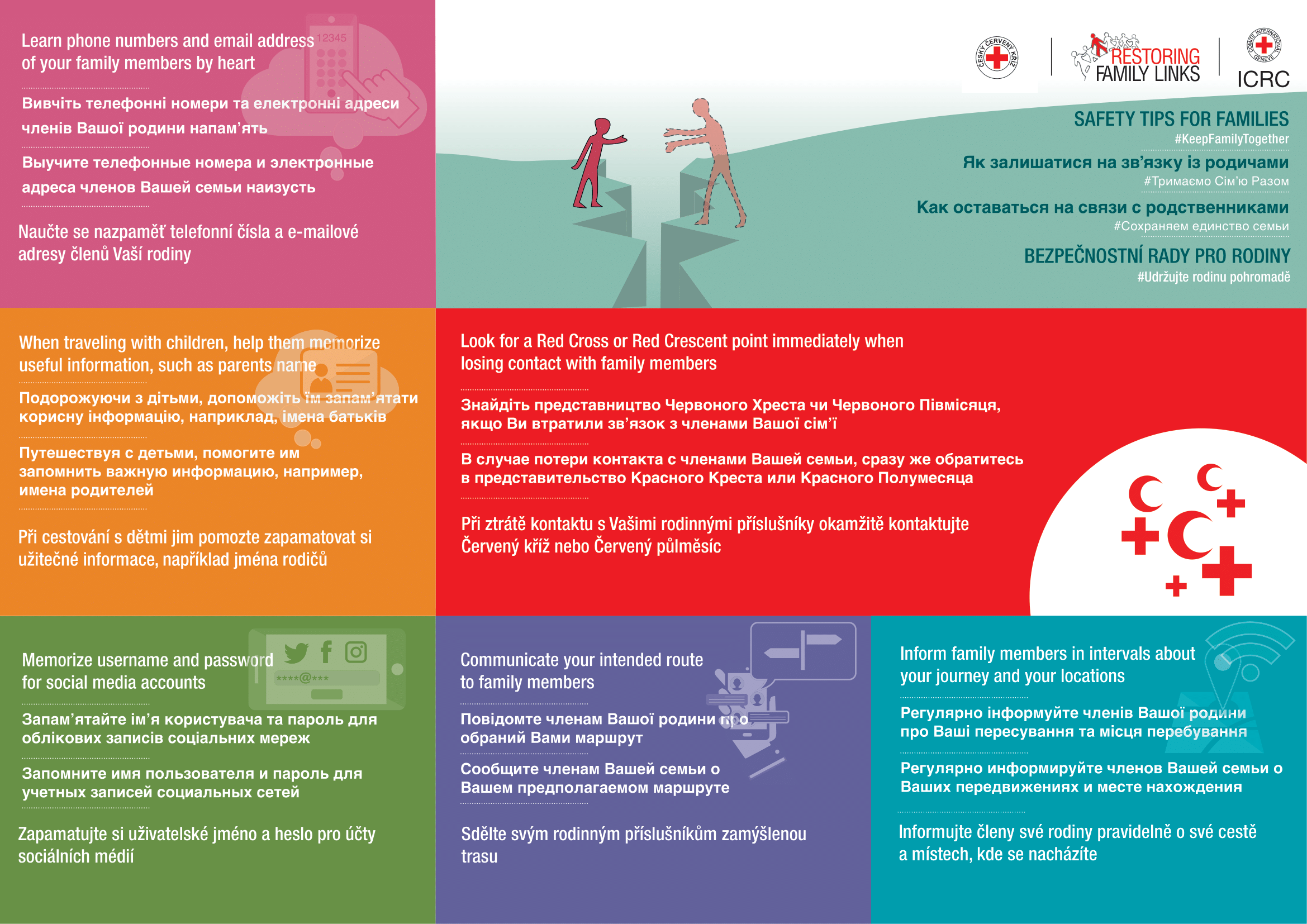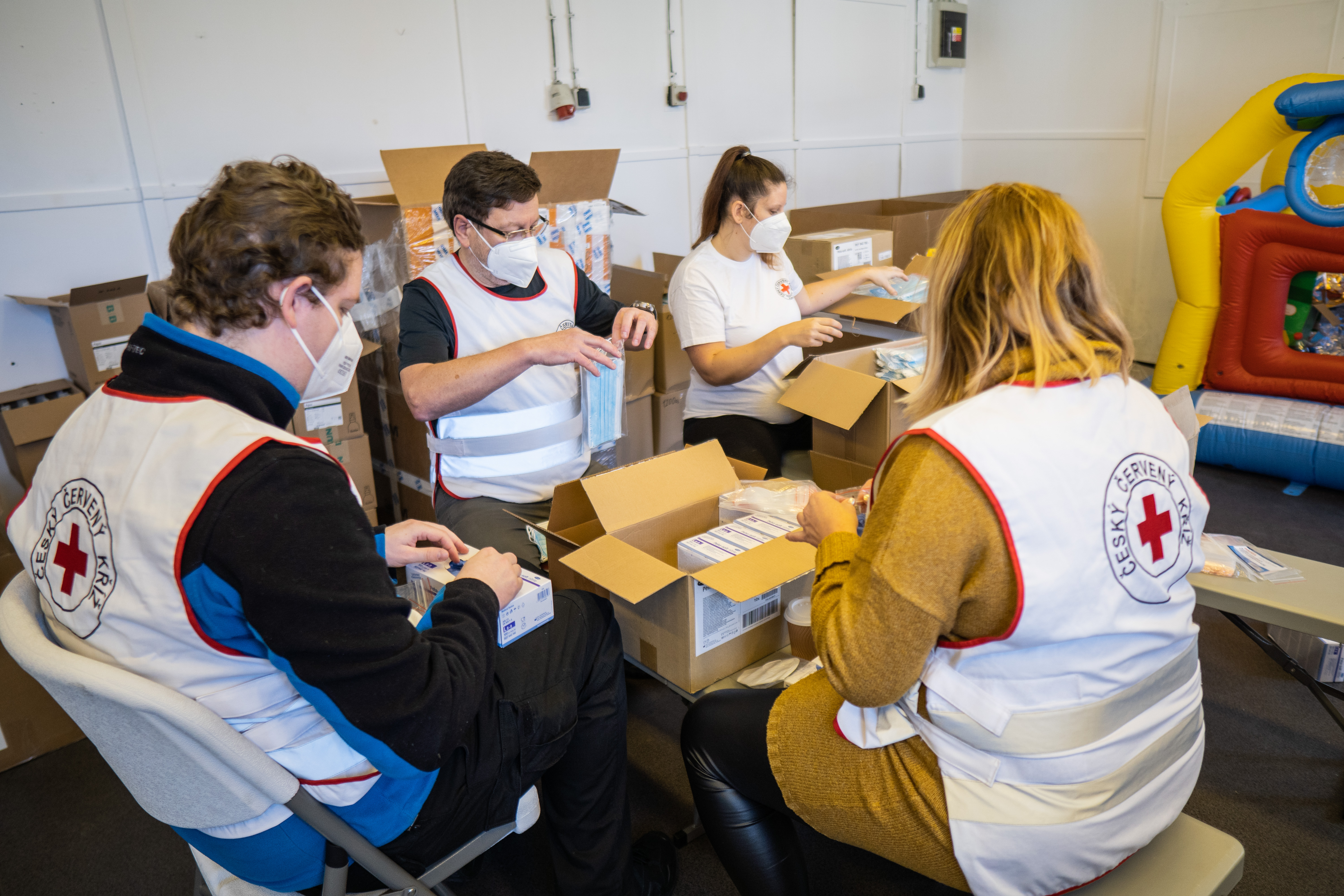Supporting people in Ukraine and beyond - the Czech Red Cross response
Due to its geographic proximity to Ukraine, Czechia has been particularly affected by the conflict. We caught up with four colleagues from the Czech Red Cross to hear about how their work to support people within Ukraine and on the move has been affected. We are joined by:
- Markéta Bartošová, Officer, Programme Department
- Olga Šiková, Officer, Foreign Affairs and Tracing Service
- Karel Konečný, MHPSS-EN delegate
- Richard Smejkal, Head of Emergency Response Unit
How did the Czech Red Cross respond to the conflict in Ukraine? Can you tell us more about your activities?
Richard: Responders on the frontline need to feel safe, so we supported Ukrainian Red Cross with helmets, protection vests and trauma sets in the beginning of the conflict. We assisted them in reaching vulnerable communities by arranging cars to provide emergency assistance, deliver humanitarian aid, and transfer patients and people with limited mobility. A challenge that we faced in our response was the frequent misuse of the Red Cross emblem, a protective tool for humanitarian workers in times of conflict. If you use well-made signs of the Red Cross on your equipment, parties of the conflict, responders, and national officials know that you can be trusted so we helped to equip Emergency Response Teams of Ukrainian Red Cross with emblems. Finally, connectivity can be difficult during conflict, so we provided Ukrainian Red Cross with walkie talkies, radio stations, and equipment to set up internet. Without opportunities for communication, it is hard to provide humanitarian aid to the most vulnerable people.

Czechia is one of the EU Member States with the highest number of people displaced from the conflict in Ukraine. How did the work of the Czech Red Cross change in response to this displacement?
Markéta: In Czechia, we support people who fled Ukraine through material assistance, food aid, psychosocial support, counselling, and support in finding accommodation and employment. About 1300 volunteers from 50 local branches are involved in these activities. We have tried to adjust to new needs without neglecting their pre-existing activities addressing other communities such as home care or housing. Moreover, we provided our support in 17 regional assistance centres in cooperation with local municipalities to disseminate information and support to new arrivals.
Karel: Mental health and psychosocial support (MHPSS) is one of the essential parts to our work. Through a project funded by the European Commission’s Directorate-General for Health and Food Safety (DG SANTE), we scaled up the provision of psychological first aid and psychosocial support to Ukrainian and other affected people by building capacities through dedicated trainings for Czech Red Cross staff and volunteers. We also network with experts involved in MHPSS on regional, national, and international levels. Our aim is to build-up and strengthen local intervention teams of inter-cultural mediators who are part of the community themselves to prevent stigmatization of mental health issues in the Ukrainian community. This teams work in the field and provide psychosocial support, psychological first aid, and make referrals to specialized services.
Olga: So far, over 600,000 people from Ukraine have arrived in Czechia. Restoring family links is key to our response: we have received tracing requests for missing loved ones from civilians and military personnel. At the start of the conflict, we established an operational centre at the headquarters of the Czech Red Cross where refugees from Ukraine can submit tracing requests in person which are then processed together with the International Committee of the Red Cross. We recruited new volunteers to get involved in the tracing service and established special hotlines which were distributed on posters and shared with assistance centres, state authorities, NGOs, and railway stations. We also operate a mobile application of the tracing service sponsored by the Czech ministry of labour and social affairs.

What are the most pressing unmet needs now and how is the Czech Red Cross approaching them?
Olga: People from Ukraine speak mainly Ukrainian and Russian, so training more volunteers who speak the language has been instrumental. We are also looking into building capacities for the individual local branches to be able to offer the tracing service in their communities. In the end, everything depends on the situation in Ukraine. We will keep our activities focused on people fleeing the country and adapt them to the ever-changing situation here in Czechia, with fluctuating waves of people coming into the country, returning to Ukraine, or crossing to other countries. It is all about utilizing existing and building new capacities so everyone can benefit from our services.
How has the displacement from Ukraine impacted local communities? Are there any good practices that could be replicated in other migration responses?
Olga: These are difficult times for everyone with high inflation, food, and energy prices, but local communities have played an instrumental role in the smooth integration of refugees from Ukraine into Czech society. At the same time, Czechia has also been a transit country for other migrants and refugees, so responding to the needs of everyone without leaving anyone behind will be the focus in the coming months.
For media inquiries, please contact Eva Oyón on: eva.oyon@redcross.eu or +32 2 235 09 22

